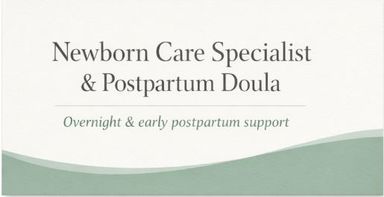The illusion that nannies can become an extension to the family is real
The illusion that nannies can become an extension of the family exists.
But do families truly need a stranger to play a role like an aunt, or a grandmother to their children?
I can’t understand why families may offer a nanny the promise to “become part of the family.”
Excelling nannies have come a long way. They have crafted a title and developed its role.
Working for the Family or Working with the Family
Nannies know their position. There is an invisible level running parallel to that of the parents, reserved specifically for one person: the nanny. It’s the level where everything revolves around the family’s children, and where only nannies can turn challenges into wonders and transform tears into smiles.
Highly qualified nannies can walk into a home and quickly learn where everything belongs, what the family eats, their preferences, beliefs, boundaries, and schedules. With minimal interaction from the parents, the best nanny can manage the household as the parents would, whether the parents are simply busy or away altogether.
The parents’ trust in the nanny’s performance when they are absent is the core mission of the nanny, just as keeping the children safe is. She knows her role is to guide and uplift the children by implementing the family’s norms and routines in their absence.
She is committed not only to herself but also to being consistent daily, executing her work with mastery and professionalism.
When parents truly value a nanny’s contribution, they understand that her energy is best spent on the children without being diverted to unrelated household tasks belonging to other professionals.
The Nanny’s Well-being
To maintain a positive environment for the children and build strong connections with them, while understanding their emotions, encouraging self-awareness, resilience, and purpose, and while keeping them engaged, transported, and healthy, the nanny needs to be in a good mental and physical state at all times.
Ideally, a stress-free environment is necessary to maintain the nanny's success. Eating and hydrating well, and taking a break now and then to recharge. Her well-being has a direct impact on the quality of care she provides.
House cleaning should be handled separately from the nanny's duties. Although many nannies convert to House managers, meaning they also manage errands and other household staff.
Some positions combine childcare with heavy household duties such as bed-making, floor vacuuming, family laundry and cooking, bottle-washing, and mopping. But these tasks inevitably reduce the time and energy available for meaningful, intellectual interaction with the children. In the AI era, the nanny/housekeeper role not only compromises the quality of care but can also hinder a child’s developmental growth. From my perspective, both families and nannies should decline such arrangements if the role dilutes the primary focus on child development and well-being.
Professional Boundaries and True Value
Working for or with the family does not make a nanny a family member. The nanny is there to exchange her experience, great attitude, and hard work for fair compensation, respect for her role, and a professional working relationship.
While affection, trust, and emotional bonds often grow naturally from working closely with children, the phrase “extension of the family” can blur boundaries. It may unintentionally create expectations that the nanny will go beyond her agreed-upon duties without proper recognition or pay.
A professional nanny maintains healthy boundaries while delivering loving, consistent, and dedicated care. She is not a relative; she is a highly skilled childcare professional who has earned her place in the household through high standards, training, experience, and reliability.
Families who truly value their nanny will:
Respect her contracted role and avoid assigning tasks outside her agreed scope of work.
Support her well-being with fair hours, breaks, and dependable pay.
Maintain open communication so both sides feel secure and appreciated.
Acknowledge her expertise in child development and trust her judgment.
Mutual respect ensures a rewarding experience for both nanny and family, without losing sight of the fact that it is a professional engagement built on trust and competence, compassion and understanding.
